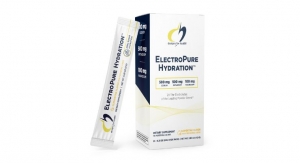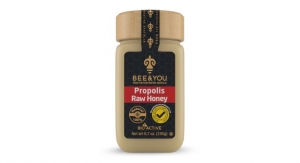By Sean Moloughney, Editor04.14.22
Opportunities in the digestive health market continue to expand thanks to accelerating research examining the gut microbiome and the gut-brain axis, along with a widening collection of unique ingredients that target varied consumer needs.
“It’s a market with huge opportunities,” John Quilter, vice president of global portfolio for Kerry’s ProActive Health business unit, said of the gut health market. “Demand for proven gut health solutions has been growing for years as a result of demographic and lifestyle changes, and increasingly proactive and preventative approaches to health. At the same time, advances in technology mean it’s now possible to offer the benefits of probiotics in a wide range of applications.”
An “overarching opportunity” in gut health, according to John Deaton, vice president of science and technology, Deerland Probiotics & Enzymes, is to offer long-term digestive health solutions, not just reduction of symptoms or discomfort. “Continuous gut maintenance ensures optimal long-term performance, just like meticulously maintaining your car will increase its life and mileage capacity.”
Importantly, digestive support is not an isolated area of health, Deaton added. “The digestive tract is the seat of health and it impacts many other parts and systems of the human body. Probiotics are versatile enough to be used in GI (gastrointestinal) support formulas but also for other areas of health (e.g., sleep, skin health) via the gut. This area is one in which we are concentrating research efforts.”
Gut health is an “immensely complex area,” said Quilter, and consumers increasingly connect it with other aspects of wellness like immune health and mental well-being. “By the mid-point of 2020, more than 20% of consumers globally reported that they had become more conscious of their digestive health as a result of COVID-19, while 75% associated probiotics with immune system support (FMCG Gurus, 2021).”
Mike Bush, CEO of Prenexus Health also cited data from FMCG Gurus that showed “55% of North Americans plan to address their digestive health in the next 12 months, and 68% of consumers say they are aware that bacteria within the digestive system may be beneficial to health.”
Meanwhile, 59% of North American consumers have heard of prebiotics; of those consumers, 26% want prebiotics in food, 33% want them in beverages, and 32% want them in supplements. “These insights show us that consumers are now making the move to support their digestive health,” said Bush. “They are doing their research on digestive-supporting ingredients and they are looking for those benefits in convenient formats. The opportunities are vast and go beyond just gut health to overall wellness.”
Digestive health seems to be on everyone’s mind, said Jacqueline Rizo, digital engagement and communications specialist at Stratum Nutrition. “Studies have shown that more than 60% of people in the U.S. experience gastrointestinal issues in any given week (American Journal of Gastroenterology, 2018). Globally, about one-quarter of people suffer from lower digestive problems (Euromonitor International, 2020).” Notably, about 70% of the immune system is located in the gut (Gut Microbes, 2012), “where a vast and complex ecosystem of microorganisms reside,” Rizo said.
Common Complaints & Unique Solutions
Abey Thomas, head of global marketing, Natural Remedies, noted that common gut issues occur in both the upper region of the GI tract (esophagus, stomach, small intestine, and gall bladder), and lower, which primarily means the colon. “GI areas for which supplementation can be effective include improving motility, digestive speed and efficiency, gut integrity, reducing gut inflammation, and improving gut immunity and favorable microbiome balance. When any area is disrupted or experiencing dysbiosis, unpleasant and uncomfortable symptoms arise such as nausea, gas, bloating, cramps, diarrhea, and/or constipation.”
Natural Remedies’ GutGard is a proprietary extract of Glycyrrhiza glabra (licorice). “GutGard is a flavonoid-rich bioactive that is clinically researched to support healthy digestive function,” said Thomas. “GutGard is created by a unique extraction process that retrieves the bioactive flavonoid profile. It is standardized to contain 10% total flavonoids by HPLC and no more than 0.5% glycyrrhizin.” GutGard works in the stomach as well as the small and large intestines, synergizing well with probiotics and extending its benefits throughout the GI tract, Thomas said.
Eric Anderson, managing director, NXT-USA noted that digestive health issues range from constipation symptoms to incomplete evacuation. “These physical symptoms also lead to psychological discomfort and decreased sleep quality.”
In Ayurvedic medicine, botanical ingredients are used to increase energy, improve overall health, and reduce inflammation, pain, and anxiety, he added. “Anxiety relief has become increasingly popular to alleviate higher stress levels associated with the pandemic and getting back to work in person. Research has shown that the gut communicates with the brain through the enteric and central nervous system, informing the brain of how the rest of the body is feeling. In fact, 90% of the communication between the gut and the brain (gut-brain axis) is sent from the gut to the brain, and only 10% from the brain to the gut.”
NXT-USA has recently launched a new digestive health ingredient called Digexin that contains a natural, GRAS, proprietary herbal extract of two synergistic ingredients designed to support both gut health and gut/brain communication. “Digexin supports calm, complete digestion, and evacuation while also sending soothing signals from the gut to the brain,” said Anderson. “This novel approach to digestive health results in better feelings of well-being, satisfaction, and quality of sleep.”
According to a global study recently published in Gastroenterology, gastrointestinal discomfort (GD) is a common disorder that affects 40% of the adult population worldwide, noted Tyler Ris, sales vice president, Bionap USA. “Poor lifestyle choice related to diet, stress, and lack of sleep and exercise have resulted in an increase in gastrointestinal discomfort where heartburn and acid reflux become more prevalent leading to a reduced quality of life.”
Bionap’s Mucosave FG is a blend of two botanicals containing polysaccharides of Mediterranean prickly pear cladodes and biophenols of olive leaves. Mucosave FG is a unique combination specifically created for gastric mucosal support and stomach discomfort. “Mucosave FG is supported with a clinical study and two are in progress,” said Ris. “The first clinical showed that Mucosave FG worked to counteract gastroesophageal reflux, protect gastrointestinal mucosa, and improve digestive function. More recently, Mucosave FG was tested in an in vitro study for its prebiotic activity where it demonstrated significant bifidogenic activity comparable to inulin.”
Francis Foley, president, Xsto Solutions, said common complaints like reflux, heartburn, and indigestion may be related to allergens, smoking, or simply poor nutritional choices. “These choices or conditions often result in compromised integrity of our stomach and small intestine. Ingredients that support mucosal lining are a critical ‘first line of defense’ for common digestive issues. Zinc carnosine, branded PepZin GI, has clinically demonstrated time and again it can support mucosal lining and separate low pH gastric juices from the structural walls of the stomach and intestine. Supporting the natural defense mechanism is key to a functioning digestive system and reduces the risk of immune challenges from poor gut health. PepZin GI has been combined with DGL (deglycyrrhizinated licorice), aloe vera, and probiotics to name just a few combinations, and there is a rationale for all these ingredients for addressing common digestive issues.”
Pre, Pro, and Postbiotics
Generally speaking, probiotics have proliferated in the marketplace thanks to high consumer awareness, even if understanding about varying health benefits for specific strains is still low. Meanwhile, prebiotics have picked up momentum in recent years; and the conversation has expanded to now include postbiotics, offering a trifecta of ingredient categories for a full range of potential product formulations.
“The intestinal microflora plays a central role in the body,” said Romane Maillet, product manager, Lallemand Health Solutions. “Probiotics for gut health have well-defined modes of action, interacting with the intestinal microflora, the gut, the gut-associated lymphoid tissue (GALT) and the enteric nervous system (ENS)."
Lallemand Health Solutions recently gained approval from Health Canada for its probiotic strain L. paracasei HA-196, recognizing its ability to help support healthy bowel habits in adults with irritable bowel syndrome (IBS) at a daily dose of 10 billion CFU. “This claim is an outcome of recent findings in the gut health area, where L. paracasei HA-196 participated in maintaining a good quality of life in populations with IBS (Nutrients, 2020). This randomized, double-blind, placebo-controlled study performed on 251 North American adults with different IBS subtypes, demonstrated the efficacy of L. paracasei HA-196 to support quality of life: emotional well-being and social functioning.”
Lallemand Health Solutions and FrieslandCampina Ingredients have joined forces to launch gut health products combining prebiotics (Biotis GOS) and probiotics (L. paracasei HA-196). “PRO-Digest Bowel Support has been specifically designed to promote digestive comfort and improve the day-to-day lives of consumers with occasional digestive disturbances,” said Maillet.
On the prebiotic front, Deerland’s PreforPro has a unique brand story and offers plenty of digestive-support product development opportunities, said Deaton. “PreforPro is a bacteriophage blend that works in the gut to encourage the healthy balance of resident gut bacteria, creating an environment where beneficial bacteria flourish and crowd out unwanted bacteria. A balanced, healthy gut microbiota sets the stage for healthy digestive function, which by extension, helps promote healthy immunity and overall well-being.”
Another fast-growing opportunity is children’s digestive health, he added. “Probiotics produce digestive enzymes to improve immunity. They also can help children digest things like dairy better, which they need for growth. One clinical study involving 81 young children (aged 2 to 6) showed that those who supplemented with DE111 had statistically significant reductions in hard stools, duration of vomiting, and overall gastrointestinal discomfort (Journal of Probiotics & Health, 2020).”
Prenexus is hitting on two rising trends at once with a mushroom-based prebiotic, MyceliaGI, a proprietary blend of red reishi, maitake, and oyster that is self-affirmed GRAS, made in the U.S., and certified organic.
“Mushrooms have a multitude of benefits, depending on the type and combination,” said Bush, “such as digestive, cognitive, immune, circulation, energy, and so much more. Consumers today—Millennials more so—are often seeking natural solutions to use food as medicine, and mushrooms meet many of the needs being identified by consumers. Through products like Prenexus Health’s MyceliaGI consumers are being exposed to benefits that prebiotics offer in addition to the traditional benefits seen in mushroom-based products.”
Over the past 20 years, functional foods and beverages have seen significant expansion, but products fortified with probiotics have grown particularly rapidly, Quilter said. “This reflects both increased awareness of probiotics, and motivation to purchase them. Our 2021 consumer survey found that nearly half (47%) of global respondents were aware of probiotics or cultures—significantly more than the 42% who were aware in 2019. Furthermore, one in four consumers globally (25%) had used a product containing probiotics over the past six months, up from 21% in 2019.”
Kerry’s ProActive Health Portfolio includes a range of branded and clinically validated digestive health ingredients, he added. “BC30 (Bacillus coagulans GBI-30, 6086) is a patented spore-forming probiotic ingredient which can be used in a range of functional food and beverage products. Over 25 published papers have shown that it can help support digestive health, immune health, and protein absorption.” Sporevia is another spore-forming probiotic suited to survive manufacturing processes to maintain cell counts throughout its shelf-life, and to germinate only when it reaches the gut.
The International Scientific Association for Probiotics and Prebiotics (ISAPP) published a consensus definition for “postbiotics” in May 2021, defining this class of ingredients as “a preparation of inanimate microorganisms and/or their components that confers a health benefit on the host.” This definition states that products can include either whole microbial cells or components of the cells, as long as they have somehow been deliberately inactivated (usually heat-treated).
Stratum’s LBiome (Lactobacillus LB) postbiotic has been used in Europe for more than 100 years as a digestive aid, long before the term “postbiotic” entered the vernacular, Rizo noted. “Lactobacillus LB contains the heat-treated cellular biomass as well as the fermentate generated by Limosilactobacillus fermentum and Lactobacillus delbrueckii, two human-derived bacterial species. It is supported by an impressive research portfolio. Boasting more than 40 studies, LBiome has a robust digestive health portfolio with 12 published clinical trials showing digestive health support for both adults and children (Therapeutic Advances in Gastroenterology, 2020).”
Scientists have identified several mechanisms of action that demonstrate how Lactobacillus LB supports the microbiome and bolsters innate immune health, starting with a healthy gut barrier, Rizo said. “The intestinal lining stretches across 4,000 square feet of surface area, forming a barrier that controls what gets absorbed into the bloodstream. Tight junctions hold gut cells together, allowing nutrients through to nourish the rest of the body. An unhealthy gut lining may have damage at these tight cell junctions, allowing partially digested food, toxins, and bacteria to penetrate the tissues beneath it. This could alter the microbiome and cause various digestive challenges, sometimes referred to as “leaky gut.’”
Brand Advice
Market experts agreed that research will continue to accelerate to unravel the complexities of gut health. As a result, brand owners would be well advised to lead with science. Double blind, placebo-controlled studies have become the norm to clinically validate new ingredients, said Anderson.
Bush advised brands to vet claims and ensure their product contains the same dose of ingredients that was clinically studied. “I would ensure that the ingredient is labeled appropriately in a way that allows the consumer to research the ingredient it they choose to do so. Lastly, I would suggest that the brand provides links to the science behind the ingredients they are featuring in their products to ease the burden on the consumer and supporting a transparent experience with the brand.”
Deaton noted that education efforts need to continue on the probiotics front. “If probiotics were compared to families, strains are the individuals. Strains have the longest names, while species, under which they fall, have the Latin binomial. Using this basic concept can create compelling and easy-to-understand marketing.”
As the world of beneficial bacteria and prebiotics continues to proliferate, it’s “imperative” for finished product brands to identify the strains, not just the species, Deaton added. “Consumers are demanding such specifics, and in general are ready to take the next steps in education about what strains have been shown by clinical trials to help regulate digestion, and how.”
Transparency, education, and honest engagement are critical factors, according to Quilter. “Consumers have a growing choice of digestive health products, and scientific substantiation is the best strategy for differentiation. Three quarters of global consumers who purchase probiotics, for example, say that science-based claims are important when choosing products.”
There’s still confusion around the differences between prebiotics, probiotics, and postbiotics, but also between different kinds of probiotics, he added. “Every strain is unique, and there are important variations in levels of performance in areas such as survivability, health benefit efficacy, and formulation flexibility ... The pandemic has heightened the responsibility of the nutrition industry to communicate honestly and to support education.”
Consumers are becoming savvier in researching dietary supplements and their ingredients, Rizo said. “Trust hinges on a number of factors but, first and foremost, it’s about quality. The demand for scientifically proven and clinically safe ingredients is strong and branded ingredients help attract and build trust among supplement users.”
With science, quality, transparency, and marketing support of branded ingredients, “brands are well on their way to getting into the hands of consumers,” Rizo added, “and the more consumers can understand the ingredients, the more likely they are to actively look for products containing them. It’s vital that brands dedicate significant amount of time and energy around educating the consumer, manufacturers, and formulators. Like the saying goes, ‘the more your consumers know, the more your brand will grow.’”
“It’s a market with huge opportunities,” John Quilter, vice president of global portfolio for Kerry’s ProActive Health business unit, said of the gut health market. “Demand for proven gut health solutions has been growing for years as a result of demographic and lifestyle changes, and increasingly proactive and preventative approaches to health. At the same time, advances in technology mean it’s now possible to offer the benefits of probiotics in a wide range of applications.”
An “overarching opportunity” in gut health, according to John Deaton, vice president of science and technology, Deerland Probiotics & Enzymes, is to offer long-term digestive health solutions, not just reduction of symptoms or discomfort. “Continuous gut maintenance ensures optimal long-term performance, just like meticulously maintaining your car will increase its life and mileage capacity.”
Importantly, digestive support is not an isolated area of health, Deaton added. “The digestive tract is the seat of health and it impacts many other parts and systems of the human body. Probiotics are versatile enough to be used in GI (gastrointestinal) support formulas but also for other areas of health (e.g., sleep, skin health) via the gut. This area is one in which we are concentrating research efforts.”
Gut health is an “immensely complex area,” said Quilter, and consumers increasingly connect it with other aspects of wellness like immune health and mental well-being. “By the mid-point of 2020, more than 20% of consumers globally reported that they had become more conscious of their digestive health as a result of COVID-19, while 75% associated probiotics with immune system support (FMCG Gurus, 2021).”
Mike Bush, CEO of Prenexus Health also cited data from FMCG Gurus that showed “55% of North Americans plan to address their digestive health in the next 12 months, and 68% of consumers say they are aware that bacteria within the digestive system may be beneficial to health.”
Meanwhile, 59% of North American consumers have heard of prebiotics; of those consumers, 26% want prebiotics in food, 33% want them in beverages, and 32% want them in supplements. “These insights show us that consumers are now making the move to support their digestive health,” said Bush. “They are doing their research on digestive-supporting ingredients and they are looking for those benefits in convenient formats. The opportunities are vast and go beyond just gut health to overall wellness.”
Digestive health seems to be on everyone’s mind, said Jacqueline Rizo, digital engagement and communications specialist at Stratum Nutrition. “Studies have shown that more than 60% of people in the U.S. experience gastrointestinal issues in any given week (American Journal of Gastroenterology, 2018). Globally, about one-quarter of people suffer from lower digestive problems (Euromonitor International, 2020).” Notably, about 70% of the immune system is located in the gut (Gut Microbes, 2012), “where a vast and complex ecosystem of microorganisms reside,” Rizo said.
Common Complaints & Unique Solutions
Abey Thomas, head of global marketing, Natural Remedies, noted that common gut issues occur in both the upper region of the GI tract (esophagus, stomach, small intestine, and gall bladder), and lower, which primarily means the colon. “GI areas for which supplementation can be effective include improving motility, digestive speed and efficiency, gut integrity, reducing gut inflammation, and improving gut immunity and favorable microbiome balance. When any area is disrupted or experiencing dysbiosis, unpleasant and uncomfortable symptoms arise such as nausea, gas, bloating, cramps, diarrhea, and/or constipation.”
Natural Remedies’ GutGard is a proprietary extract of Glycyrrhiza glabra (licorice). “GutGard is a flavonoid-rich bioactive that is clinically researched to support healthy digestive function,” said Thomas. “GutGard is created by a unique extraction process that retrieves the bioactive flavonoid profile. It is standardized to contain 10% total flavonoids by HPLC and no more than 0.5% glycyrrhizin.” GutGard works in the stomach as well as the small and large intestines, synergizing well with probiotics and extending its benefits throughout the GI tract, Thomas said.
Eric Anderson, managing director, NXT-USA noted that digestive health issues range from constipation symptoms to incomplete evacuation. “These physical symptoms also lead to psychological discomfort and decreased sleep quality.”
In Ayurvedic medicine, botanical ingredients are used to increase energy, improve overall health, and reduce inflammation, pain, and anxiety, he added. “Anxiety relief has become increasingly popular to alleviate higher stress levels associated with the pandemic and getting back to work in person. Research has shown that the gut communicates with the brain through the enteric and central nervous system, informing the brain of how the rest of the body is feeling. In fact, 90% of the communication between the gut and the brain (gut-brain axis) is sent from the gut to the brain, and only 10% from the brain to the gut.”
NXT-USA has recently launched a new digestive health ingredient called Digexin that contains a natural, GRAS, proprietary herbal extract of two synergistic ingredients designed to support both gut health and gut/brain communication. “Digexin supports calm, complete digestion, and evacuation while also sending soothing signals from the gut to the brain,” said Anderson. “This novel approach to digestive health results in better feelings of well-being, satisfaction, and quality of sleep.”
According to a global study recently published in Gastroenterology, gastrointestinal discomfort (GD) is a common disorder that affects 40% of the adult population worldwide, noted Tyler Ris, sales vice president, Bionap USA. “Poor lifestyle choice related to diet, stress, and lack of sleep and exercise have resulted in an increase in gastrointestinal discomfort where heartburn and acid reflux become more prevalent leading to a reduced quality of life.”
Bionap’s Mucosave FG is a blend of two botanicals containing polysaccharides of Mediterranean prickly pear cladodes and biophenols of olive leaves. Mucosave FG is a unique combination specifically created for gastric mucosal support and stomach discomfort. “Mucosave FG is supported with a clinical study and two are in progress,” said Ris. “The first clinical showed that Mucosave FG worked to counteract gastroesophageal reflux, protect gastrointestinal mucosa, and improve digestive function. More recently, Mucosave FG was tested in an in vitro study for its prebiotic activity where it demonstrated significant bifidogenic activity comparable to inulin.”
Francis Foley, president, Xsto Solutions, said common complaints like reflux, heartburn, and indigestion may be related to allergens, smoking, or simply poor nutritional choices. “These choices or conditions often result in compromised integrity of our stomach and small intestine. Ingredients that support mucosal lining are a critical ‘first line of defense’ for common digestive issues. Zinc carnosine, branded PepZin GI, has clinically demonstrated time and again it can support mucosal lining and separate low pH gastric juices from the structural walls of the stomach and intestine. Supporting the natural defense mechanism is key to a functioning digestive system and reduces the risk of immune challenges from poor gut health. PepZin GI has been combined with DGL (deglycyrrhizinated licorice), aloe vera, and probiotics to name just a few combinations, and there is a rationale for all these ingredients for addressing common digestive issues.”
Pre, Pro, and Postbiotics
Generally speaking, probiotics have proliferated in the marketplace thanks to high consumer awareness, even if understanding about varying health benefits for specific strains is still low. Meanwhile, prebiotics have picked up momentum in recent years; and the conversation has expanded to now include postbiotics, offering a trifecta of ingredient categories for a full range of potential product formulations.
“The intestinal microflora plays a central role in the body,” said Romane Maillet, product manager, Lallemand Health Solutions. “Probiotics for gut health have well-defined modes of action, interacting with the intestinal microflora, the gut, the gut-associated lymphoid tissue (GALT) and the enteric nervous system (ENS)."
Lallemand Health Solutions recently gained approval from Health Canada for its probiotic strain L. paracasei HA-196, recognizing its ability to help support healthy bowel habits in adults with irritable bowel syndrome (IBS) at a daily dose of 10 billion CFU. “This claim is an outcome of recent findings in the gut health area, where L. paracasei HA-196 participated in maintaining a good quality of life in populations with IBS (Nutrients, 2020). This randomized, double-blind, placebo-controlled study performed on 251 North American adults with different IBS subtypes, demonstrated the efficacy of L. paracasei HA-196 to support quality of life: emotional well-being and social functioning.”
Lallemand Health Solutions and FrieslandCampina Ingredients have joined forces to launch gut health products combining prebiotics (Biotis GOS) and probiotics (L. paracasei HA-196). “PRO-Digest Bowel Support has been specifically designed to promote digestive comfort and improve the day-to-day lives of consumers with occasional digestive disturbances,” said Maillet.
On the prebiotic front, Deerland’s PreforPro has a unique brand story and offers plenty of digestive-support product development opportunities, said Deaton. “PreforPro is a bacteriophage blend that works in the gut to encourage the healthy balance of resident gut bacteria, creating an environment where beneficial bacteria flourish and crowd out unwanted bacteria. A balanced, healthy gut microbiota sets the stage for healthy digestive function, which by extension, helps promote healthy immunity and overall well-being.”
Another fast-growing opportunity is children’s digestive health, he added. “Probiotics produce digestive enzymes to improve immunity. They also can help children digest things like dairy better, which they need for growth. One clinical study involving 81 young children (aged 2 to 6) showed that those who supplemented with DE111 had statistically significant reductions in hard stools, duration of vomiting, and overall gastrointestinal discomfort (Journal of Probiotics & Health, 2020).”
Prenexus is hitting on two rising trends at once with a mushroom-based prebiotic, MyceliaGI, a proprietary blend of red reishi, maitake, and oyster that is self-affirmed GRAS, made in the U.S., and certified organic.
“Mushrooms have a multitude of benefits, depending on the type and combination,” said Bush, “such as digestive, cognitive, immune, circulation, energy, and so much more. Consumers today—Millennials more so—are often seeking natural solutions to use food as medicine, and mushrooms meet many of the needs being identified by consumers. Through products like Prenexus Health’s MyceliaGI consumers are being exposed to benefits that prebiotics offer in addition to the traditional benefits seen in mushroom-based products.”
Over the past 20 years, functional foods and beverages have seen significant expansion, but products fortified with probiotics have grown particularly rapidly, Quilter said. “This reflects both increased awareness of probiotics, and motivation to purchase them. Our 2021 consumer survey found that nearly half (47%) of global respondents were aware of probiotics or cultures—significantly more than the 42% who were aware in 2019. Furthermore, one in four consumers globally (25%) had used a product containing probiotics over the past six months, up from 21% in 2019.”
Kerry’s ProActive Health Portfolio includes a range of branded and clinically validated digestive health ingredients, he added. “BC30 (Bacillus coagulans GBI-30, 6086) is a patented spore-forming probiotic ingredient which can be used in a range of functional food and beverage products. Over 25 published papers have shown that it can help support digestive health, immune health, and protein absorption.” Sporevia is another spore-forming probiotic suited to survive manufacturing processes to maintain cell counts throughout its shelf-life, and to germinate only when it reaches the gut.
The International Scientific Association for Probiotics and Prebiotics (ISAPP) published a consensus definition for “postbiotics” in May 2021, defining this class of ingredients as “a preparation of inanimate microorganisms and/or their components that confers a health benefit on the host.” This definition states that products can include either whole microbial cells or components of the cells, as long as they have somehow been deliberately inactivated (usually heat-treated).
Stratum’s LBiome (Lactobacillus LB) postbiotic has been used in Europe for more than 100 years as a digestive aid, long before the term “postbiotic” entered the vernacular, Rizo noted. “Lactobacillus LB contains the heat-treated cellular biomass as well as the fermentate generated by Limosilactobacillus fermentum and Lactobacillus delbrueckii, two human-derived bacterial species. It is supported by an impressive research portfolio. Boasting more than 40 studies, LBiome has a robust digestive health portfolio with 12 published clinical trials showing digestive health support for both adults and children (Therapeutic Advances in Gastroenterology, 2020).”
Scientists have identified several mechanisms of action that demonstrate how Lactobacillus LB supports the microbiome and bolsters innate immune health, starting with a healthy gut barrier, Rizo said. “The intestinal lining stretches across 4,000 square feet of surface area, forming a barrier that controls what gets absorbed into the bloodstream. Tight junctions hold gut cells together, allowing nutrients through to nourish the rest of the body. An unhealthy gut lining may have damage at these tight cell junctions, allowing partially digested food, toxins, and bacteria to penetrate the tissues beneath it. This could alter the microbiome and cause various digestive challenges, sometimes referred to as “leaky gut.’”
Brand Advice
Market experts agreed that research will continue to accelerate to unravel the complexities of gut health. As a result, brand owners would be well advised to lead with science. Double blind, placebo-controlled studies have become the norm to clinically validate new ingredients, said Anderson.
Bush advised brands to vet claims and ensure their product contains the same dose of ingredients that was clinically studied. “I would ensure that the ingredient is labeled appropriately in a way that allows the consumer to research the ingredient it they choose to do so. Lastly, I would suggest that the brand provides links to the science behind the ingredients they are featuring in their products to ease the burden on the consumer and supporting a transparent experience with the brand.”
Deaton noted that education efforts need to continue on the probiotics front. “If probiotics were compared to families, strains are the individuals. Strains have the longest names, while species, under which they fall, have the Latin binomial. Using this basic concept can create compelling and easy-to-understand marketing.”
As the world of beneficial bacteria and prebiotics continues to proliferate, it’s “imperative” for finished product brands to identify the strains, not just the species, Deaton added. “Consumers are demanding such specifics, and in general are ready to take the next steps in education about what strains have been shown by clinical trials to help regulate digestion, and how.”
Transparency, education, and honest engagement are critical factors, according to Quilter. “Consumers have a growing choice of digestive health products, and scientific substantiation is the best strategy for differentiation. Three quarters of global consumers who purchase probiotics, for example, say that science-based claims are important when choosing products.”
There’s still confusion around the differences between prebiotics, probiotics, and postbiotics, but also between different kinds of probiotics, he added. “Every strain is unique, and there are important variations in levels of performance in areas such as survivability, health benefit efficacy, and formulation flexibility ... The pandemic has heightened the responsibility of the nutrition industry to communicate honestly and to support education.”
Consumers are becoming savvier in researching dietary supplements and their ingredients, Rizo said. “Trust hinges on a number of factors but, first and foremost, it’s about quality. The demand for scientifically proven and clinically safe ingredients is strong and branded ingredients help attract and build trust among supplement users.”
With science, quality, transparency, and marketing support of branded ingredients, “brands are well on their way to getting into the hands of consumers,” Rizo added, “and the more consumers can understand the ingredients, the more likely they are to actively look for products containing them. It’s vital that brands dedicate significant amount of time and energy around educating the consumer, manufacturers, and formulators. Like the saying goes, ‘the more your consumers know, the more your brand will grow.’”




























